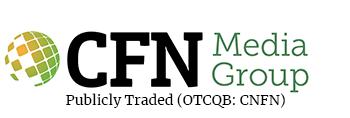
Big Pharma is the most profitable industry in the world, with a combined return on invested capital (ROIC) of 17.3%—and it’s not even close. The second most profitable industry had a ROIC of just 15.3%, meaning the pharma industry could give up $1 trillion in sales, maintain its current R&D spending, and still be the most profitable industry in the world.
With blockbuster drugs generating billions of dollars annually, investors are constantly on the lookout for under-the-radar companies taking novel approaches to drug development. While drug development takes years, these companies can quickly become valuable when announcing positive clinical trial results, licensing deals, or partnerships.
FSD Pharma Inc. (NASDAQ: HUGE) (CSE: HUGE) is a biopharmaceutical company developing innovative therapies for brain and inflammatory disorders to improve patient quality of life. With a unique approach to treating multiple sclerosis, major depression, and inflammation, investors may want to take a closer look at the under-the-radar stock.

This article will look at FSD Pharma’s three clinical drug candidates, what makes them so valuable, and why the market may not be appreciating their potential.
A New Potential MS Treatment
Multiple sclerosis, or MS, is the most prevalent disabling neurological condition of young adults worldwide. While immune-modulating treatments can help manage symptoms, currently, there is no cure for multiple sclerosis. The good news is that most people living with MS have an average or near-normal lifespan without severe disabilities.
The condition occurs when the immune system attacks the myelin sheath or the cells that produce and maintain it. Ultimately, these attacks cause inflammation and injury to the sheath and eventually damage the underlying nerve fibers. And nerve damage is responsible for many of the adverse side-effects of multiple sclerosis in patients.
FSD Pharma’s LUCID-MS is a patented, proprietary neuroprotective new chemical entity (CE) with demonstrated efficacy in preclinical animal models for the potential to preserve and prevent myelin degradation—a critical cause of multiple sclerosis. By targeting the underlying cause, the drug could provide a better treatment than immuno modulators.
According to Verified Market Research, the market for multiple sclerosis treatments reached $27.5 Billion in 2020. The analyst projects that the market will continue to grow at a 6.3% compound annual growth rate to reach $42.5 billion by 2028. With its novel approach, FSD Pharma’s LUCID-MS could capture a significant market share if approved.
Click here to learn more and receive an investor presentation
Advancing Psychedelic Treatments
Psychedelics have become a promising treatment option for mental health conditions. While most psychedelics remain in clinical trials, the FDA approved Spravato (esketamine) nasal spray for treatment-resistant depression. In clinical trials, Spravato had a statistically-significant effect on the severity of depression, with some effect seen within two days.
FSD Pharma’s LUCID-PSYCH is a unique psychedelic molecule undergoing IND-enabled studies as a targeted treatment for neuropsychiatric disorders, including major depressive disorder.
Global Data projects that the market for major depression could grow from about $4 billion in 2019 to nearly $8 billion by 2029, representing a 7.1% compound annual growth rate. With no current treatments, psychedelics could capture a meaningful part of the market, and LUCID-PSYCH’s unique properties could set it apart from the competition.
A Unique Way to Target Inflammation
Chronic inflammation is responsible for a host of medical conditions, ranging from autoimmune to cancer. While there are several pathways to mitigate inflammation, a popular approach involves using lipid mediators that suppress inflammatory processes. These lipid mediators include N-palmitoylethanolamide, or PEA.
FSD Pharma’s FSD-PEA is a patented ultra micronized formulation of PEA with the potential to address a wide range of inflammatory conditions. The active ingredient interacts with the endocannabinoid system to promote anti-inflammatory activities. The company recently finished a Phase-1 clinical trial with positive top-line results, and will be heading to Phase-2 clinical trials very soon.
Fortune Business Insights reckons that the global anti-inflammatory drug market stood at $94 billion in 2019 and could grow at a 9.3% CAGR to reach over $190 billion by 2027. With many anti-inflammatory biologics facing near-term patent expiration, pharmaceutical companies may be on the lookout for new patentable approaches.
Click here to learn more and receive an investor presentation
An Under-the-Radar Opportunity
FSD Pharma trades at a fraction of its peers in the psychedelics, MS, and PEA space (see below). With enough cash to carry out its operations for two or more years without raising capital, investors also benefit from little to no near-term dilution. And its world-class management team is more than capable of executing on its vision.

Perhaps the most vivid sign that the market is overlooking the stock is Elium Therapeutics’ (ELYM) $250 million market capitalization. Both companies have PEA compounds in or near Phase II clinical trials, but FSD Pharma trades for significantly less, with a market capitalization just $36 million—and it offers exposure to psychedelics and MS treatments, too.
The Bottom Line
FSD Pharma Inc. (NASDAQ: HUGE) (CSE: HUGE) targets massive, multi-billion dollar markets with novel treatments. Even if it captures just a tiny fraction of these markets, the company could quickly move off of its paltry $36 million market capitalization. And in the meantime, investors can invest at a fraction of the valuation of its peers.
Click here to learn more and receive an investor presentation










